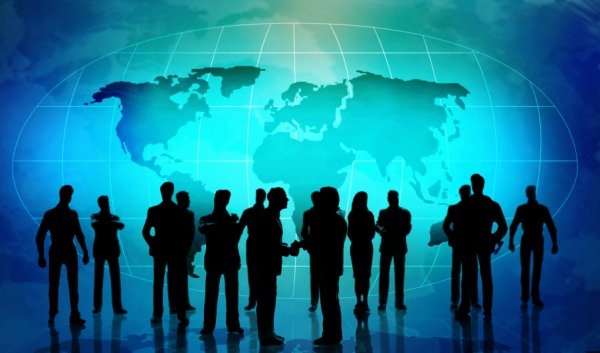Paul Ehrlich’s first visit to Australia in 1970 drew me away from doctoral studies in palaeoecology towards a tutorship in human geography and a new life increasingly in human affairs. In two geography subjects, Paul and Anne Ehrlich’s seminal text Population, Resources, Environment that addressed human ecology was used alongside more obviously social and geographical texts. At this stage, almost fresh from the natural sciences, I cheerily called for the integration of the social sciences. Subsequently, the exotic allure of Thailand enticed me away, first for fieldwork towards an MA and later for work as an advisor in ‘rural development’ in Thailand and Laos.
In my journey from natural science into the social sciences I eventually came to see human ecology and the social sciences as together describing critical parts of the whole system that I began to call the ‘humanity system’. The system includes all of human thought, action and the short and long-term consequences. To build a general theory, apart from concepts from human ecology, human geography and standard social science subjects such as economics, sociology and politics, it is necessary to include ideas from technology, psychology, philosophy and anthropology, archaeology, history, education, military affairs, ‘urban affairs’ and law in the analysis.
The humanity system is best studied starting at least 200,000 years ago, including a-temporal concepts as they become relevant through time. Humanity systems evolved from nature harvesting through farming to city-centered systems, through ‘traditional’ and modern stages. With population growth, humanity systems have now replaced much of the biosphere with farming, mining, and rigidi-structure largely in arable regions of the world and degraded the rest of the biosphere.
None of the specialized subjects which populate the social sciences, nor human ecology, by themselves can fully explain our life on planet Earth. An integrating theory, which recognizes the influence of Nature, emotion, power and force, and avails itself of the best relevant ideas in each of the relatively specialized disciplines, is needed. It must be recognized that some of the theory of the social sciences is based on values influenced by emotion such as wealth, luxury and ethnic and national prestige.
The scientific reports on global warming and climate change, particularly the papers by James Hansen, through the 2000s became more disturbing. This led me to realize that the global humanity system required rapid change if humankind was to attain an ecologically sustainable state and survive in the long term. However, it was also clear that the near dominance of corporations, including the private mass media, over world politics was going to make progressive change extremely difficult. Many corporations and associated wealthy individuals have been donating directly and indirectly to political parties, funding ‘public relations’ and arranging ‘revolving doors’, so distorting public democracy.
Oreskes, Hoggan and others have accumulated firm evidence that it was the tobacco and fossil-fuel corporations that orchestrated climate denial with the help of so-called think-tanks following Hansen’s address to the US Congress and the collapse of the Soviet Union. Denial was not a grass roots process but largely a top down one, organized by a few apparently adverse powerful personalities and spread through the business-run media and even some government-state media. It is this sort of understanding combining at least human ecology and political economy that is required as an early step if we are to overcome denial.
We all have free will or creative action capacity to varying extents enabling us to decide to be brave and generous, and make an enhanced contribution towards changing the world. Although millions of local change contributions, both concerning human relationships and human ecology, must be made, sustainability is necessarily global. Thus inter-cultural communication is critical.
To promote such a change, universities could offer an integrating general course to all first year students. In research, we need specialists who first study (not research) widely in order to harmonize their techniques and theories with integrating theories so generalists can lead teams of such specialists. Academics and others could form teams starting on gloriously multi-disciplinary campuses. Team members could initiate a dialogue among themselves before venturing forth to conduct dialogue with important seniors in the world outside and to teach the public.
For further discussion see my new book Changing the World which can be purchased from www.humanitysystembooks.com
Michael Tuckson is now a writer. For most of his working life he was an advisor in rural development in Thailand and Laos, and government and university staffer in Australia. He has degrees in geology, palaeoecology and human geography.
MAHB-UTS Blogs are a joint venture between the University of Technology Sydney and the Millennium Alliance for Humanity and the Biosphere. Questions should be directed to joan@mahbonline.org
MAHB Blog: https://mahb.stanford.edu/blog/changing-the-world-humanity-system/
The views and opinions expressed through the MAHB Website are those of the contributing authors and do not necessarily reflect an official position of the MAHB. The MAHB aims to share a range of perspectives and welcomes the discussions that they prompt.
